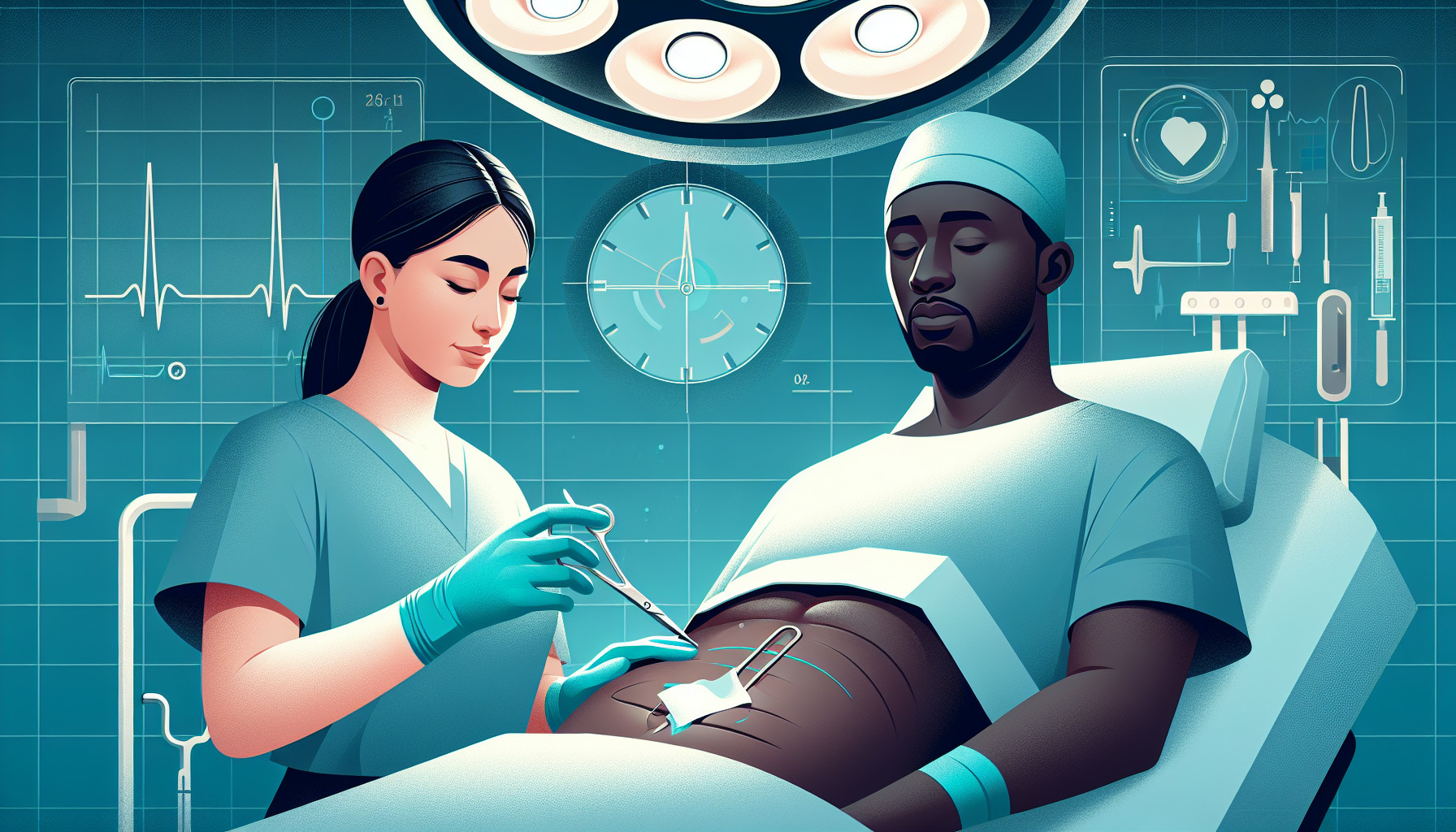Our Summary
This study aimed to give recommendations on how to handle acute diverticulitis (AD), a medical condition that can be difficult to diagnose and treat. The project was a joint effort between the European Association for Endoscopic Surgery (EAES) and the Society of American Gastrointestinal and Endoscopic Surgeons (SAGES). They reviewed research on six topics related to AD, including its causes, how it’s diagnosed, and how to manage different forms of the disease. The team then made consensus statements and recommendations based on their findings.
A total of 51 consensus statements and 41 recommendations were agreed upon by the experts and then voted on by members of the EAES and SAGES. Based on over a thousand responses and additional live votes, almost all of the recommendations were agreed upon. These will likely change how AD is managed if they are not already being applied.
However, there were still some disagreements. These included whether or not to use imaging for diagnosis, whether to use antibiotics for non-complicated AD, and whether to routinely check the colon after non-complicated diverticulitis has been resolved.
Overall, these findings can help doctors manage AD more effectively.
FAQs
- What was the aim of the study conducted by the European Association for Endoscopic Surgery (EAES) and the Society of American Gastrointestinal and Endoscopic Surgeons (SAGES)?
- What were some of the topics related to acute diverticulitis (AD) that the research team reviewed?
- What were some of the areas of disagreement among the experts regarding the management of acute diverticulitis (AD)?
Doctor’s Tip
One helpful tip a doctor might tell a patient about diverticulitis surgery is to follow post-operative care instructions carefully. This may include taking prescribed medications, following a specific diet, and avoiding strenuous activities until fully healed. It’s important to communicate any concerns or changes in symptoms to your healthcare provider to ensure a smooth recovery process.
Suitable For
Patients with severe, recurrent, or complicated diverticulitis are typically recommended for surgery. Complicated diverticulitis may include patients with abscesses, perforations, fistulas, or strictures. Surgery may also be recommended for patients who do not respond to conservative treatments or have frequent episodes of diverticulitis. Additionally, patients with complications such as chronic pain, recurrent infections, or bowel obstruction may also benefit from surgery. Ultimately, the decision to undergo surgery for diverticulitis should be made on a case-by-case basis in consultation with a healthcare provider.
Timeline
Before diverticulitis surgery, a patient may experience symptoms such as abdominal pain, bloating, constipation, diarrhea, and fever. They may also undergo diagnostic tests such as a physical examination, blood tests, imaging studies (such as CT scans or colonoscopy), and possibly a colonoscopy to confirm the diagnosis of diverticulitis.
After surgery, the patient will typically spend a few days in the hospital recovering. They may experience pain, discomfort, and fatigue during this time. The healthcare team will monitor their progress and provide pain management, antibiotics, and other medications as needed. The patient will gradually start to resume normal activities and follow a specific diet to aid in their recovery.
Overall, the goal of diverticulitis surgery is to remove the affected part of the colon (colon resection) and prevent future complications such as recurrent diverticulitis, abscesses, or fistulas. With proper care and follow-up, most patients can expect to make a full recovery and improve their quality of life.
What to Ask Your Doctor
Some questions a patient should ask their doctor about diverticulitis surgery include:
- What are the potential risks and complications of diverticulitis surgery?
- What is the expected recovery time after surgery?
- Will I need to make any lifestyle changes after surgery?
- What type of surgery will be performed and why is it recommended for my specific case?
- What are the alternatives to surgery for treating diverticulitis?
- How will my symptoms be managed before and after surgery?
- Will I need a colostomy or ileostomy after surgery?
- How often will I need follow-up appointments after surgery?
- What is the long-term outlook for someone who has had diverticulitis surgery?
- Are there any dietary restrictions I should follow after surgery?
Reference
Authors: Francis NK, Sylla P, Abou-Khalil M, Arolfo S, Berler D, Curtis NJ, Dolejs SC, Garfinkle R, Gorter-Stam M, Hashimoto DA, Hassinger TE, Molenaar CJL, Pucher PH, Schuermans V, Arezzo A, Agresta F, Antoniou SA, Arulampalam T, Boutros M, Bouvy N, Campbell K, Francone T, Haggerty SP, Hedrick TL, Stefanidis D, Truitt MS, Kelly J, Ket H, Dunkin BJ, Pietrabissa A. Journal: Surg Endosc. 2019 Sep;33(9):2726-2741. doi: 10.1007/s00464-019-06882-z. Epub 2019 Jun 27. PMID: 31250244
